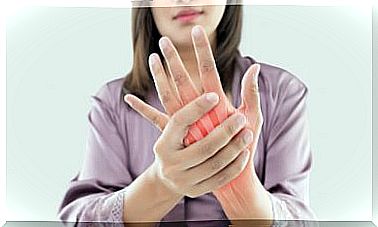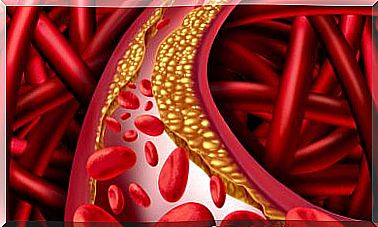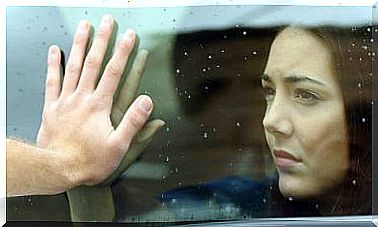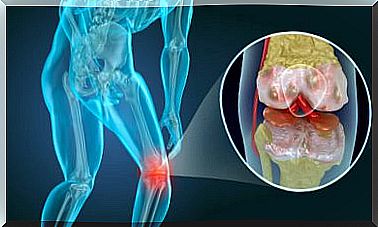How To Detect Depression
Many people believe that depression is simply a feeling of sadness that is greater than usual or a state of discontent and frustration. However, it is a mood disorder that requires professional help and a lot of will on the part of the affected person to get ahead. Hence, knowing how to detect depression is essential.
Depression is one of the main causes of disability today according to the WHO (World Health Organization). It is a disorder that does not arise from one day to the next, but rather gradually occurs until the person is trapped in a state of helplessness, pessimism and inability to act. Furthermore, it remains one of the most stigmatized and misunderstood mental health disorders.
To all this, we must add that more than 50% of people who suffer from depression do not receive treatment or if they do, it is not the most appropriate. This is stated by the Pan American Health Organization.
Hence, there are a large number of people adrift, plunged into a deep state of inactivity, not knowing what to do or how to act, when their world seems to be in ruins.
The early detection of depression facilitates both the therapeutic approach and a faster improvement of the affected person. It is therefore essential to learn to identify the symptoms that may be indicating the presence of depression. Let’s go deeper.
Detecting depression: main symptoms
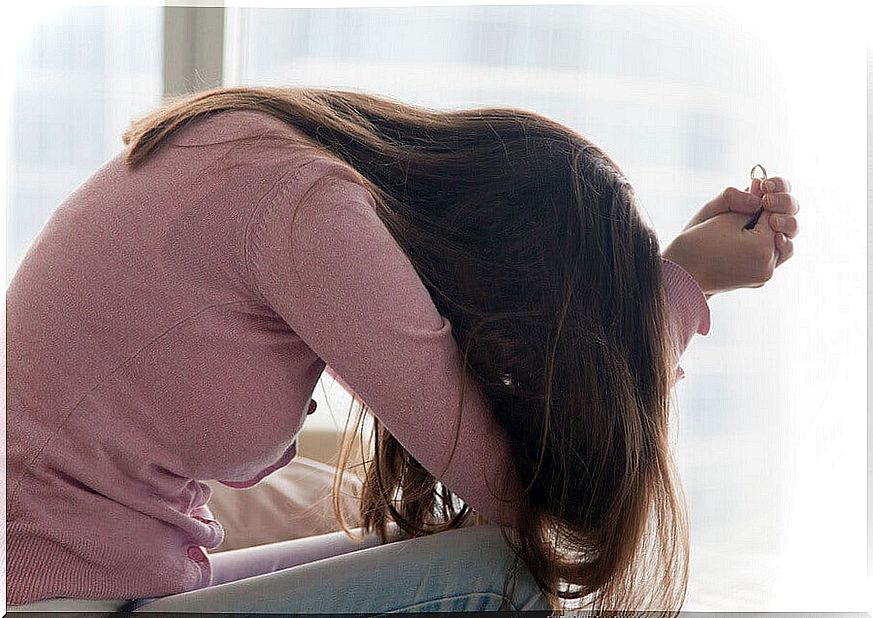
Depression is not being sad, melancholic or down, nor is it a symptom of weakness, nor is it a matter of women or adults. This psychological disorder can present itself in many ways, just as each person can experience it in a different way.
It is a very complex psychological reality that affects almost any aspect of our body, from cognitive processes to the immune or digestive system. Here are the most characteristic symptoms to help detect depression:
- Cognitive symptoms: memory loss, concentration problems, rumination, cognitive distortions, a feeling of mental fog and in the most severe cases, suicidal thoughts.
- Emotional symptoms: sadness, irritation, feelings of disappointment, guilt, feeling of not being understood by others or bad mood.
- Behavioral: difficulty in carrying out any task or activity that implies responsibility, lack of interest in socializing, hypoactivity or hyperactivity, among others.
- Physical symptoms: muscle pain, headaches, difficulty sleeping, weight gain or loss, exhaustion, intestinal problems, etc.
Now, this does not mean that if you have one or more of these symptoms you have depression, since you have to take into account other types of variables and aspects. Only a specialized professional will be able to make a proper diagnosis. In addition, it must be borne in mind that at some point in our lives we all go through stages of reluctance or sadness. Hence, going to a good professional is so important.
How to detect depression?
Depression is a misunderstood illness. There are those who trivialize it, those who associate it with cowardice or weakness or who simply reduce it to a feeling of sadness. Many people find it difficult to put themselves in the shoes of a person suffering from depression.
Thus, in order for you to get to know it and understand a little more about the gears that make it up, below we will explain what are some of its most obvious signs that, on occasions, tend to go unnoticed.
1. Detecting depression: the disguise of the demand
There are people who tend to believe that they should do the best they can, even believe it so much that they can reach unsuspected limits. The problem is that this trend also carries a great deal of frustration.
Demanding and perfectionism are a double-edged sword that may be hiding low self-esteem and, after that, depression. Wanting to make everything perfect can be subject to gaining the approval of others, and then being able to accept yourself.
A mentality that does not allow errors in the background is a punishing judge who criticizes and blames each time what is expected is not achieved. In fact, perfectionism carries not only the possibility of frustration but also the experimentation of high doses of anxiety, a dangerous cocktail that can end up leading to both physical and psychological health problems.
Thus, the weight of the demand together with frustration and anxiety can undermine self-esteem and thus trap the person in a psychological prison of reluctance, pessimism and inactivity known as depression.
2. Act like nothing is wrong
Being depressed can mean staying home without wanting to go out, but it can also mean putting on a mask to camouflage your discomfort and show, in turn, that you are okay and that you can do anything. In fact, there are a large number of people who prefer to hide how they are without knowing that by doing so they intensify their state.
In these cases it is more difficult to detect the problem, since the person acts as if nothing is happening to him, he can even become the life of a party or laugh out loud. However, if we observe it well, we can identify some small tell-tale behaviors of that silenced sadness.
3. Not wanting to do anything

Losing interest in participating in activities or doing things that were previously interesting and enjoyable is a sign that should not be overlooked. We refer, for example, to the refusal to play sports, read or listen to music by a person who enjoyed doing these types of activities.
This inability to feel satisfaction is known as anhedonia and is often accompanied by deep apathy. The presence of both is often key to detecting depression.
4. The presence of past trauma
Each one of us usually supports the weight of that emotional backpack that we carry around. It is about the chains that tie us to the past, to those situations that we did not know how to elaborate and we decided to patch in some way to continue. The problem is that we do not solve anything that way.
Emotional wounds remind us that we still have cracks through which suffering emerges, voids that torment us and that prevent us from moving towards well-being. Therefore, if they are not cured, if we do not heal them, there will always be possibilities for deep discomfort and sometimes depression to appear.
5. He knows how to keep his feelings well
There are people who are experts in camouflaging their feelings behind a mask of happiness and joy. Others we can even refer to as emotionally unavailable. The point is that, both for some and for others, it is not easy for them to share their emotional experiences with others and if they do, it is always under the guise of a false well-being.
Sometimes this attempt to “be okay”, “not have problems” or “be happy” is a kind of makeup to camouflage a depression and give others an image that you can do anything. In some way, this aspect is closely linked with demandingness and perfectionism.
A curious fact related to emotions provided by research carried out by a team of researchers from McMaster University, Ontario, Canada, is that people with depression often have great difficulty imagining the emotional world of people who do not suffer from this disorder. For their part, the latter could do so in relation to depressed people.
6. “Abnormal” habits appear
Stopping or overeating can also be a helpful sign for depression. There is a strong link between anxiety about food and sadness or low self-esteem. This is confirmed by research such as the one published in 2014 by the Chilean Nutrition Magazine.
Another of the habits that can change are those related to sleep. It is normal for insomnia or nightmares to appear. There are even people who may be inclined to smoke, drink alcohol or ingest other types of substances. All these changes may have a reason: to try to give life a little pleasure.
The problem is that most of the time these types of behaviors are quick solutions to deny an emptiness or a deep state of dissatisfaction that in the long run only perpetuates it over time.
As we can see, depression is a disorder that we should not ignore, as it can have serious consequences. It is advisable to go to a psychologist or psychiatrist so that they can detect depression adequately and so that together with him, the person can gradually manage their emotional conflicts and alleviate the deep discomfort they feel.
